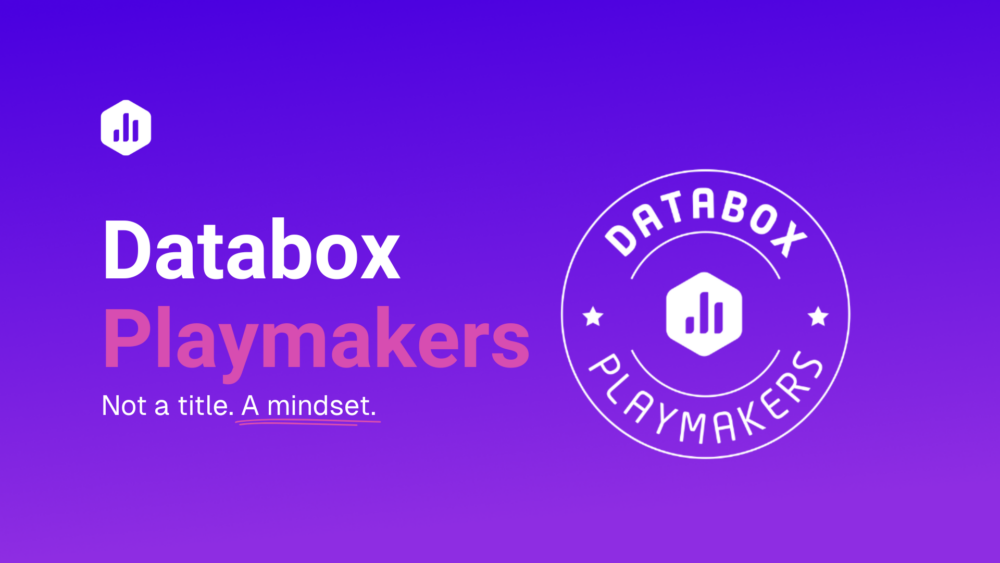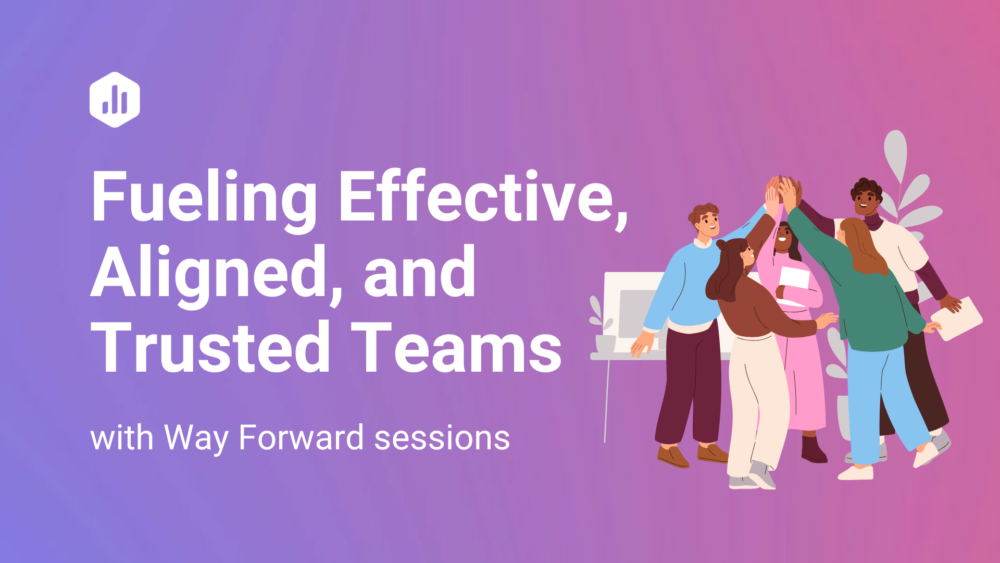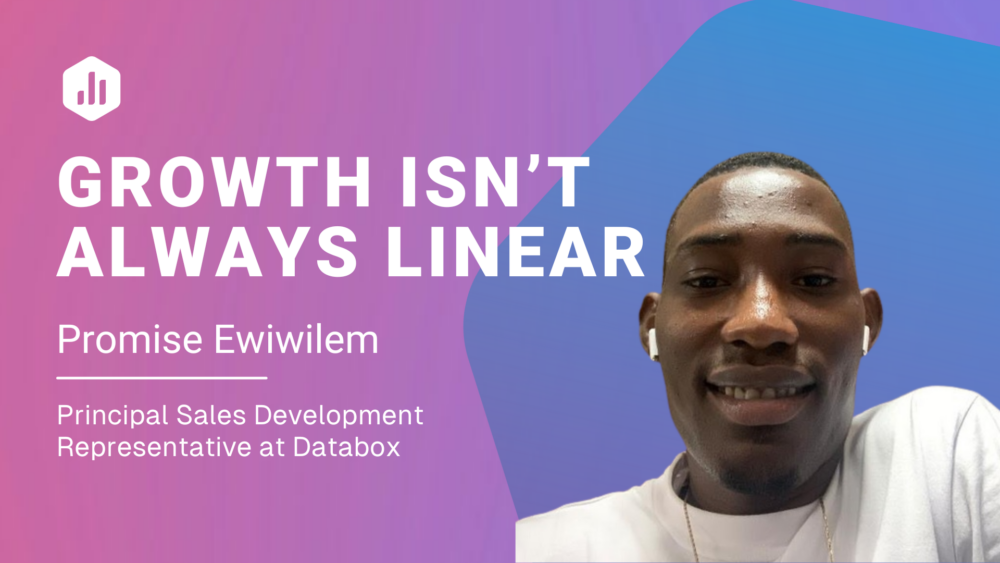Table of contents
Going to work shouldn’t give you a pit in your stomach, right? It should instead make you excited and inspired about the day ahead. Correction, not just a day, but the future. When we work in a positive, motivating, growth-stimulating environment aligned with our values and internal passion, our jobs can become something to look forward to. But that doesn’t depend solely on our internal perspective but on the culture of the company we work for as well.
At Databox, we believe the company culture is the main driving factor and one of the few sustainable advantages when attracting and retaining the best talent on the market. The research confirms that culture-driven organizations experience significantly higher productivity and more commitment from their members, which ultimately affects and contributes to stronger customer satisfaction. Furthermore, from the employer branding perspective, the positive company culture significantly affects your EVP (employer value proposition). Your company’s best ambassadors and references are inspired, motivated, and engaged team members.
Invisible elements of company culture make the most significant impact
While looking from the outside, the company culture might be quickly minimized to the attractive physical work environment or any other visible part (such as employees, company benefits, the vision, appearance, and symbols); it is rather the atmosphere, the implicit set of values that influence what people do and more importantly, how they do it in an organization. All of these elements of culture exist, no matter if the company decides to create them or not, but they can choose to actively work on developing them.

So while some characteristics of the culture are easily perceived by the external public, what forms the foundation of a strong culture is often submerged deeper; in the shared values and beliefs, attitudes, traditions, underlying assumptions, personal needs, and relationships between the team members. We have to purposely create and influence these elements to mold the environment that simultaneously keeps us motivated and engaged.
And that is what we chose to work on at Databox, from the early days of forming the team to more intensively over the past few years.
How we shape our people-first culture at Databox
First, let us give you a little backstory. Looking back at the beginning of the Databox journey, our main focus was to build a product we would all be proud of, and customers would love to use. But as our team grew, we became similarly “obsessed” with addressing another essential aspect of building a great company: forming a strong team culture. As our founder Davorin Gabrovec repeatedly points out, one of the biggest responsibilities of CEOs and founders is to create an organization where people are motivated to work, reach their full potential, and innovate on a world-class level. Strongly believing this will be one of the most crucial aspects of our success in the future, we wish to make Databox more than just a great place to work in, but rather a place of inspiration and growth.
“We’re not just building a business; we’re building a culture, where our team members are valued as individuals and provided with the opportunity to grow – into better leaders, individuals, and team players.”
So far, we’ve been doing pretty good according to our high eNPS survey scores and employee retention ratio. Around 2 years ago, we took our first steps toward defining our core values and leadership principles and mapped out a transparent system of promotions and career paths. But if we wanted to maintain a culture and work environment that positively influences how our people feel about working and growing their careers at Databox during our team’s intense growth, we needed to step up our game and strategically run the activities to support it.

Forming our own People team
Previously, Rebeka, our People Operations Manager, handled all formal and social activities in Peoples Operations. She was also the only member of the team we now call our People team. She steered the hiring activities in our GTM division, as our founder Davorin drove the growth of our product and engineering teams, both, of course, with cooperation with the other directors.
I was the third person to join the People team. As an instigator of team expansion, Davorin inspired me to join to help drive the culture initiatives and build on employer brand recognition. Having worked with him in the past, I was constantly impressed with his passion for forming great teams besides building great products. So when we talked about my transition to Databox and the plans for the growing team, expressing his strong belief in the importance of investing in people and company culture only confirmed my decision to join.
We are now a team of 6 on our People team, and we work closely with leaders and teams across the organization to drive initiatives that help our Playmakers build their career paths, support our managers’ development in their new roles, and continuously improve the overall employee experience.

Today we are a team of 143 Playmakers from 18 countries. The people team’s main objective is to drive our strategy to attract, grow and retain the best talents within the 4 functional areas: Talent Acquisition, Career Development, Employee Experience, and People Operations.
Our primary mission in building a people-first culture is to continuously invest in creating an environment in which everyone is excited to join, motivated to grow, and inspired by the company’s mission. Furthermore, we wish to recognize the importance of our people and honor the idea that work should be a motivating additive to their lives rather than focusing solely on business results. With this in mind, our efforts are focused on 3 strategic pillars: finding the best talent, investing in our team, and creating an exceptional employee experience.
Key pillars for our People team strategy
Finding the best talent on a scale
To do that, we must start with the hiring process. Internally our culture has been and still is recognized as one of the strongest parts of our organization by employees. But we realized not many people knew about it. To keep up with the hiring needs as we scale, we built on our brand awareness and invested more time into communicating who Databox Playmakers are. Along with forming an in-house talent acquisition function in our processes, we can now find more talent at scale.
When growing our team, we’re focused on adding members that align with the essential elements of our culture, but we’re also mindful of each individual’s unique traits and qualities. Much like in professional sports, we are building our dream team, and we want only the best playmakers possible in every position. For us, this means the right mindset and respecting the values we hold dear. And if we’re honest, we’re pretty strict about it. For us, this has proven to be a great approach when scaling our team and preserving our team culture in parallel. Putting a focus on both – value fit and respecting individuality has proven to bring a lot of success business-wise while simultaneously creating a positive, diverse, and highly motivating work environment.
Investing in our team’s development and growth
The second major pillar of our approach is the continuous investment in developing our leaders and supporting all Playmakers in growing their talents. To build high-powered and committed teams, we’re not only focused on individual skills needed to perform on an expected level but more so on competencies. And we start building on those at the very beginning – from onboarding a new team member to mentoring and coaching throughout different stages of their career paths.
Supporting our Playmakers to follow their career aspirations is a key to individual engagement and our organizational success. Besides the established Career Path Framework with a clear structure for achieving our career goals, we’ve defined cross-functional and leadership competencies and expected behaviors to help leaders and team members define more tangible development activities.
Now, as more individuals are stepping into managerial and leadership roles (some for the first time), we’re focusing more on leadership development as we recognize they are vital ties to the success of our teams.
Creating an exceptional employee experience
The most important thing about a hybrid work model such as ours is the intentionality and effort directed to creating, fostering, and nurturing culture when people are working in multiple places. As with our team, where more than 60% of Playmakers work remotely and others closely together in our Ptuj office, we’re especially aware of the importance of establishing a remote-friendly environment that gives an equal opportunity to all members to contribute and collaborate at their full potential. Connecting via online collaboration tools, and keeping the processes, business, and communication transparent across the entire organization helps us create an ownership mindset and everyone to understand their impact on the success.

Looking past work-related activities, our culture shines the brightest when we have fun – from bonding on virtual and on-site team-building events to socializing on Slack within different interest groups. We regularly meet over book club and podcast discussions, stay active with our Around the Equator challenge, share recipes and cooking tips, discuss parenting, and share silly photos of our pets.
How we measure our success
We’re aware that the only judges of our success are ultimately our people. As we value and encourage self-reflection and inclusive speak-up culture, one way we invite our Playmakers to share their ideas and commentaries is via our quarterly eNPS. eNPS survey is a tool that helps our organization, specifically every team in Databox, reflect on our present satisfaction levels. In the current year, our eNPS score has averaged 75 points, which is well above the average, according to BambooHR. Still, we’re not resting on our laurels and are aware there’s a lot to be improved in the future.
So far, the survey has helped us in our analysis and given us a better insight into the opportunities we need to address as a company. But recently, we have developed our activities even further and introduced “eNPS team discussion”, where every individual has a chance to share their personal perspective on the results and better understand what’s having the biggest impact on their team. Based on the discussions, teams define their solutions and commitments, which we believe will become good practices shared across the organization later on in the future.
Investing in People is the key driver for the future
Investing in culture and employee experience is (and should be) a never-ending story, and we consider our efforts to date as the beginning steps in the right direction.
We believe, now, more than ever, that people and their level of engagement in their work are the key drivers of an organization’s success. When a culture is strong, it motivates people. A strong development program can be a key differentiator that sets you apart from comparable employers. Positive employee experience helps employees feel recognized and engaged. And companies that don’t see their people as their top priority and positive culture as a norm will struggle to stay competitive in the long run.
Now back to you: Did you find this perspective valuable? We’d love to hear your thoughts on this topic.














